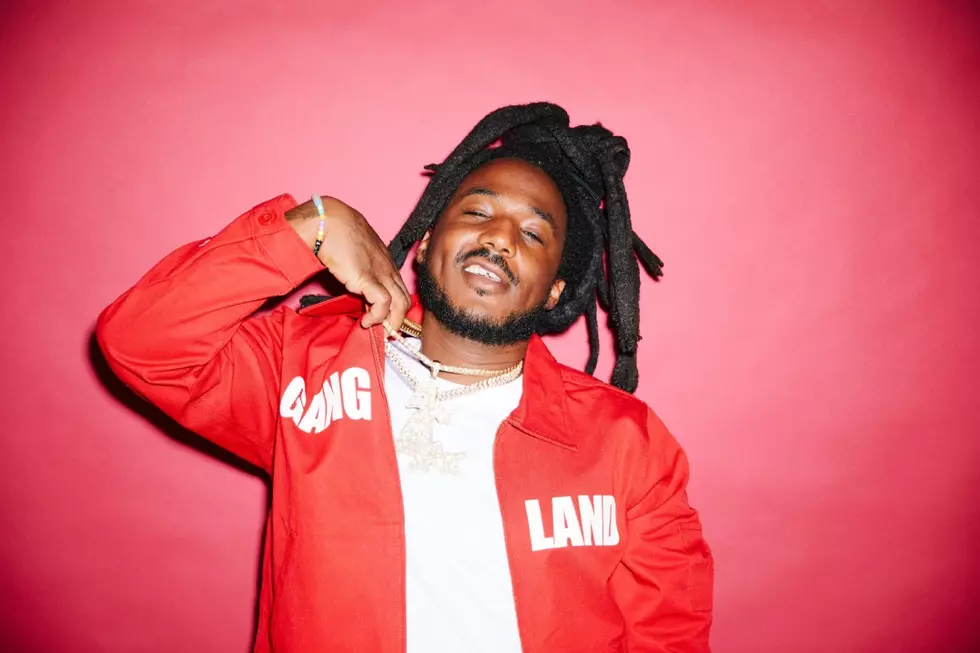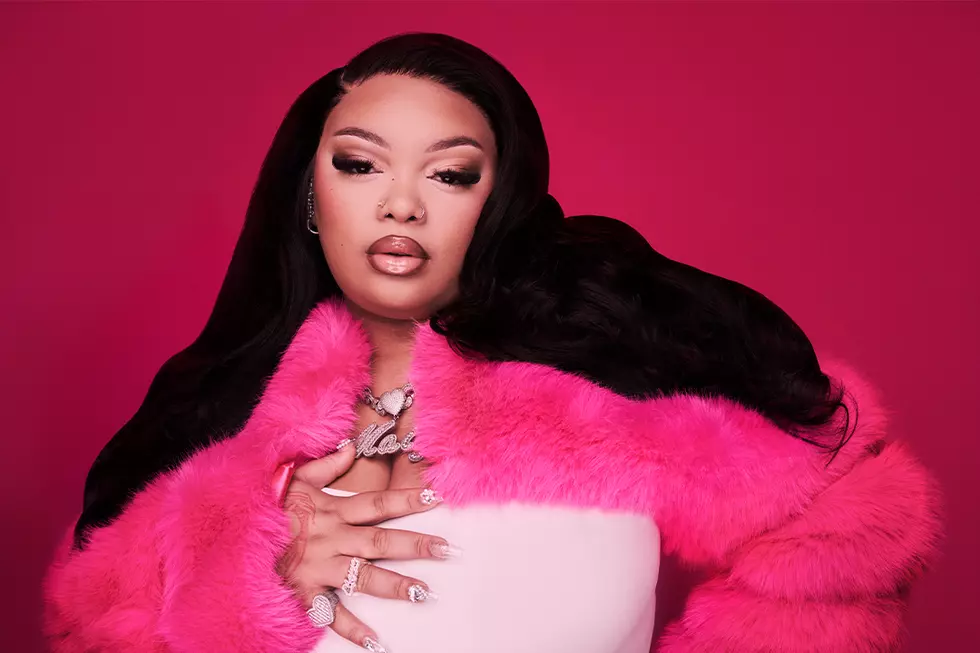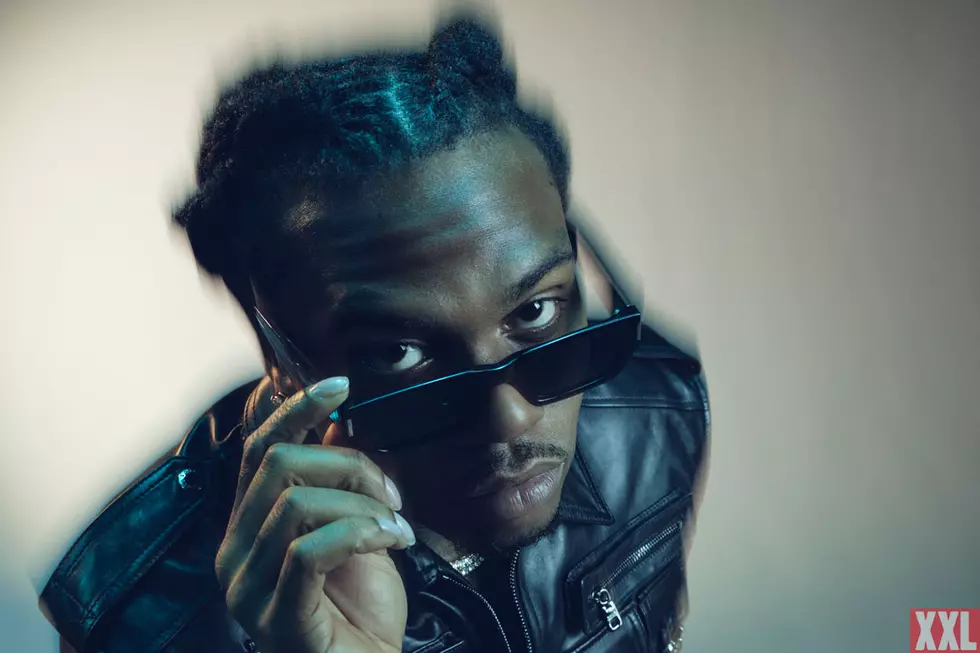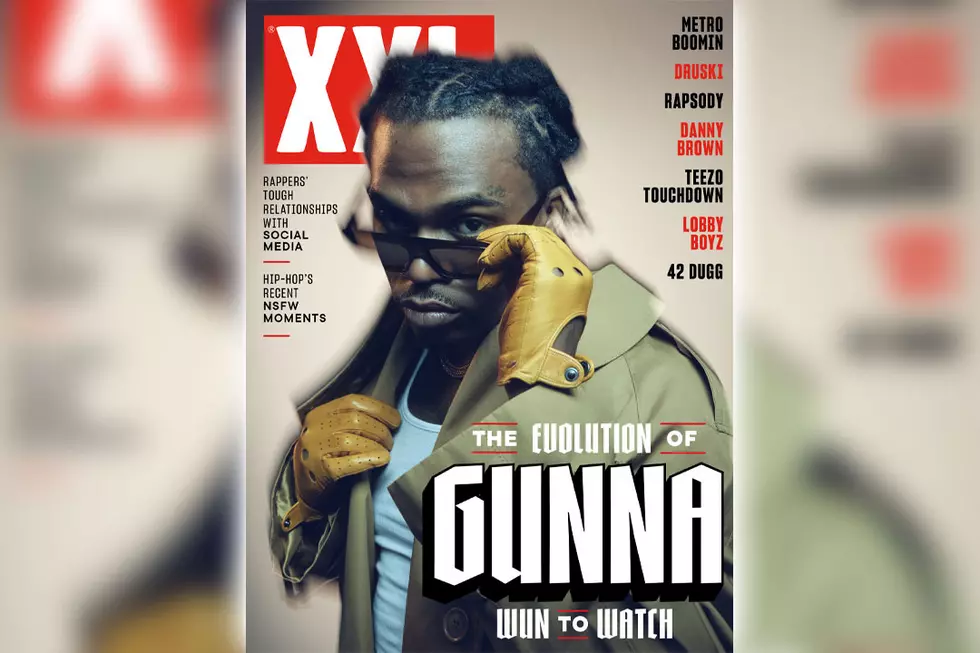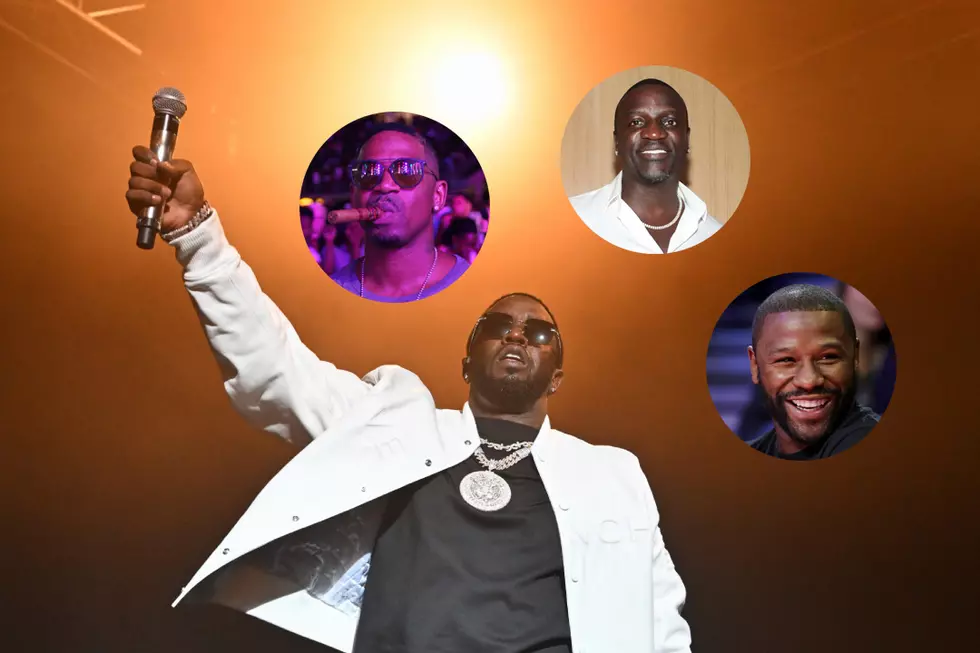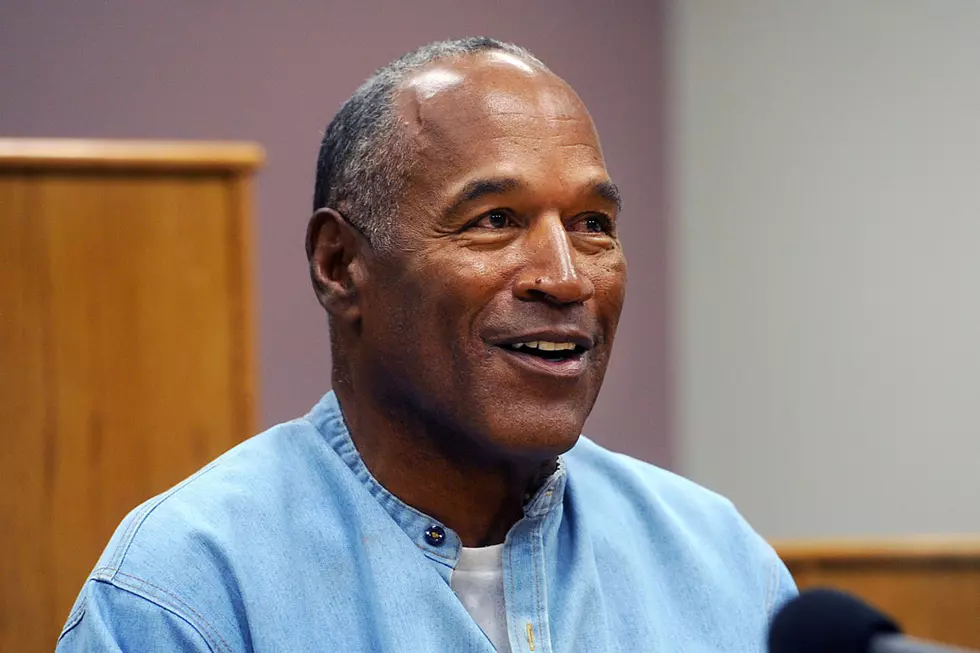
Why Rhymesayers Is a Legendary Movement in Hip-Hop
Tell 'Em
Twenty years into the game and rhymesayers have built a serious movement in hip-hop. One that everyone should be aware of.
Words Kris Ex
Editor’s Note: This story originally appeared in the Winter 2015 issue of of XXL Magazine, on stands now.
Ashanti Abdullah can tell you all about Minneapolis. He can tell you about the time it got 56 degrees below zero and ice-fishing in the winter, when some of the lakes freeze over so thickly that they become season roads, but that it’s best to wait until you hear about the first truck falling through the ice before heading out yourself. (“That’s when you know it’s almost time,” he says.) He can tell you the good places to eat a mix of diverse dishes, the prices of real estate in town, the gentrification. He can speak authoritatively on the racial makeup of his hometown, past and present: the riots of the late 1960s, the de facto segregation, the influx of various Hmong peoples, Somalians, Eritreans, Ethiopians and Mexicans in terms of the local, national and international geopolitics that governed it all. He’s like a walking Wikipedia of Minneapolis, full of tidbits about the number of Fortune 500 companies based in town (17 in 2015), that the region has overtaken the Pacific Northwest in breweries per capita.
With pride, he’ll run down the city’s sports teams, noting that the Minnesota Lynx have won three of the last five WNBA Finals, that Prince himself threw a party for the winning ladies a few months ago, after their latest title. He’ll boast that downtown’s First Avenue is one of the premier live music venues in the country—parts of Purple Rain were filmed there, and the company he works for, Rhymesayers Entertainment, does as many functions there as possible. In fact, though their upcoming 20-year anniversary show is shaping up to be so big that it will be held at the 19,000-plus capacity Target Center, First Avenue is deeply involved, because that’s how things are done in town. But Rhymesayers’ eight-year-old annual Soundset Music Festival which is—and Abdullah wants to be very careful with his wording here—“the biggest one-day hip-hop only festival in the world,” which has sold out its 30,000 allotment the past two years running, is starting to be even too big for Minnesota State Fair grounds where it’s held every Memorial Day weekend.
But the closer you get to the inner workings of Rhymesayers—the hometown record label that hosts acts like Atmosphere, Dilated Peoples, MF DOOM, Jake One and many others—the less concrete Abdullah becomes. He knows that the Rhymesayers staff has doubled in the past two years, but it requires him to take an actual headcount of a staff meeting to surmise that the independent record label now has about 12 employees. As for his own position at the company, Abdullah’s one of three people that manage the artists, whatever that means. He’s not sure of his title. He’s usually doing three jobs at once, but with a very recent hire, he’s now down to doing just two. He’ll share that the team is often in the office past 10 p.m. at night, to the point that they never get to use the grill on the large patio in their office space, which is located right near their worldwide underground famous record store, The Fifth Element. What they’re doing at all of these hours is nebulous, but it falls under the category of “work.”
Abdullah’s lack of information around his job seems to part of Rhymesayers’ organizational culture. No one has titles; they can tell you their general responsibilities, but that’s about it.
One person, who is supremely integral to the company’s bottom line, even has to check his old business cards to see if he’s ever had a job title. “Especially in the early years of this company, everything was done out of necessity, not because we had this strategic science to what we were trying to get done,” says Sean Michael Daley. As Slug, Daley is one half of Atmosphere, the rap group most associated with Rhymesayers. If Rhymesayers Entertainment has a face, Slug would be it.
Born to a Black, White and Native American father, and a mother of Scandinavian descent, Slug—whom everyone refers to interchangeably as Slug, Sean or by his group name (you kind of have to get what they’re talking about in context)—is a formidable but welcoming presence. When he comes into the Rhymesayers’ offices, his hands are full with items to help him fight the cold he thought he has gotten over: a plastic bag from Walgreens, full of cough drops and almonds; a glass bowl of his wife’s chicken noodle soup; a thermos of hot tea. He’s dressed in all black—weathered jeans, basic Adidas track sneakers and an Eazy-E hoodie—looking more like a delivery person than a rap star. (Later that night, at a memorial event for former Rhymesayers artist Michael “Eyedea” Larsen—of Eyedea & Abilities—who died while sleeping in 2010 of a drug overdose, Slug fits right in with the crowd, who all choose function over fashion; comfortability over couture. When he walks through the sea of rap t-shirts, hoodies, non-ironic beards and lumberjack wear, the few people who stop him, so cordially and familiarly, all non-plussed. If you didn’t know he was Slug, you’d have no idea he was Slug; he’s just that regular.)
Slug opines that had he lived in New York City, he would have had an opportunity to be mentored by Prince Paul, maybe. Or he would have had been able to stand outside of a record label and push his records like Mobb Deep did. (He talks like this, using rap groups as metaphors and touchstones for big ideas.) But, growing up in Minneapolis, he had no access to the center of the hip-hop industry.
“We learned it all from reading magazines and watching videos,” he says. “We didn’t have a very well-conceived blueprint, but we knew we had to do something and we had a strong work ethic. The things we didn’t have available to us, we just made our own. All the things we didn’t have access to, we had to invent our own versions of those kind of things. There wasn’t a mentorship—everything was kind’ve self-taught.”
Rhymesayers Entertainment is an Island of Misfit Toys that caters to a hip-hop sphere that’s largely ignored by the mainstream and most underground circles of hip-hop. Their artists are all outcasts. From Brother Ali—a White albino Muslim who traffics in-charged political raps—to the silly and eccentric super lyricism of more recent signee Prof, the label’s acts fit in mainly because they don’t quite fit in anywhere else.
“As a label, if you look at the roster and releases, it’s so diverse,” says Jason “J-Bird” Cook, who, for lack of a title acts as something between the company’s General Manager and Chief Operating Officer. “Yeah, there’s the core Minnesota base, but we put out DOOM’s [MM.. FOOD] record, we put out Freeway’s [The Stimulus Package] record.”
“Fortunately for us, I feel we’ve got a small roster of acts that have built up really good following and I think that’s kept us solvent,” says Brent “Siddiq” Sayers. Though he has no title, Siddiq is the head and vision of Rhymesayers, the man the company is named after. He’s where the buck begins and stops, and the one who, in theory, should know more about the label than anyone else, the one whose information should be viewed as gospel. So when he says that the label has a small roster, despite their being over 30 acts listed on the company’s website, you’re inclined to take his word for it—some of the artists are no longer active, some projects were one-offs, others still are recombinations of other solo and group acts. But pressed for a number of active groups, Siddiq is admittedly stumped. “I should know this off the top of my head,” he laughs. Like all things Rhymesayers, his focus is on results and reason over mythology and marketing, purpose over promotion. Inventory is something deemed as mission-critical, and not used for self-congratulation. “I like to call us the working man’s label,” shares Siddiq. “We spend 10 times as much time just actually in the ground working than polishing things and hyping ourselves up or telling the stories. We’ve always flown under the radar, pretty much ever since we’ve come onto the scene. We’ve never put as much focus into those [other] things because they never seemed to be really what helped us build the connection between us and the fan, and that’s the only thing we’ve ever really cared about. Everything else was secondary to that. We were late to everything. Hell, we didn’t have a website until far late; we didn’t have a store until way down the line; up until 2004, we distributed all of our records ourselves, right out of the back.”
Rhymesayers Entertainment was born out of a crew called Headshots in the mid-1990s. By many accounts, Headshots—which featured some 18 members, give or take—was the first hip-hop crew to span the Twin Cities, but linking up with rappers from St. Paul, Minneapolis’ sister city across the Mississippi River. Fashioning themselves after hip-hop collectives like the Hieroglyphics and the Wu-Tang Clan’s extend family, Headshots were a battle-ready crew that prided itself on challenging other crews at open mics all across the cities.
Siddiq, who was then known as Stress, began as a DJ doing warehouse parties and club nights, before becoming a “promoter-slash-producer” and the galvanizing force behind Headshots. “It was all laying the foundation for being a scenebuilder, in that sense,” he recalls. The crew began to make tapes, starting with Headshots. Vol. 1: The WBBOY Sessions, which were recorded in Siddiq’s basement. They put out seven installments before disbanding in the wake of the death of Abstract Pack member Session (Herbert Ford Foster IV) in a 1997 car accident.
It was real traumatic on us as a crew,” confesses Slug. “It was kind of hard for everybody to
navigate that and still see a bigger picture of where we were all trying to go. Headshots broke up, and who was left was the few of us that were still focused on being in Rhymesayers—and it was a much smaller unit. Siddiq took the few of us that were still left, that wanted to sacrifice and put in the work, and helped us see and figure out how to reach our goals. He was always a leader. He always had his hands in stuff ; he was always trying to make things happen, always trying to crack things off—even as a young dude. So it made sense that was the position he played as far as starting the company.”
Today, Rhymesayers exists as an LLC, with the principals being Siddiq, J-Bird, Slug, Anthony “Ant” Davis and Skye Rossi. The label largely eschews the metrics and schemes of the major music industry. They keep the markup on their merchandise as low as possible and focus on low-ticket prices for live shows. The base ticket for the Soundset festival—which last year featured Big Sean, Ice Cube, Ludacris and others, in addition to Rhymesayers’ artists—is only $50. “There’s a higher VIP for people that ain’t that, but you don’t have to do that,” says J-Bird. “For these many groups, it’s very nicely priced—in comparison to festivals that are a $100, $150, $200. And if you get on the early bird, where we have our list of our fans that we give perks, you can get a ticket for under $40.”
The bulk of the company’s revenue comes from touring, merchandising and—counter to the industry trend—the selling of elaborately packaged CDs. Traditional sales, whether digital or not, and ancillary revenue from streaming services are a non-factor. “I don’t even check Soundscan, anymore,” says Siddiq. “It’s irrelevant to me.”
Twenty years into the game, Rhymesayers has an incredibly loyal following and rely largely on the direct to consumer relationship. And their continued growth indicates that they know what they’re doing, even if they can’t always articulate it.
“I didn’t think this was gonna last as long as it did,” says Slug. “I never really had a ‘Where do you see yourself in five years?’ plan. I figured I was always gonna end up having to go back to driving trucks. I didn’t consider that I would hit 40 and still be doing this.
I always crack jokes with these dudes, like, ‘At any moment somebody can still come and take this away.’ And it can. Who knows? What if my voice don’t come back? What if we’re siting here talking right now and this is a wrap? But they’re always like, ‘You know what? Even if that happened, you got a catalog that’s gonna continue to move.’ So it’s kind’ve like, shit, I guess, in a weird way, we kind of did something here.”
Seems like it.
See Photos From Kendrick Lamar's XXL Winter 2015 Cover Shoot
More From XXL

